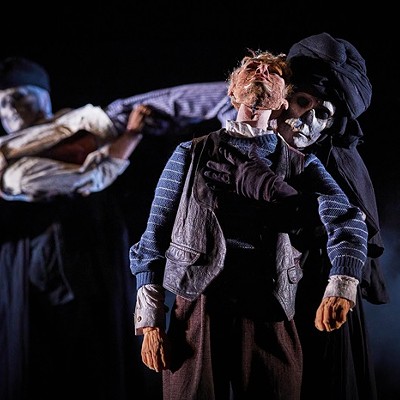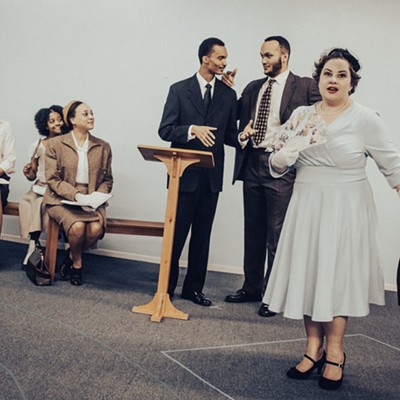There are a lot of dead people in Jessica Dickey's Charles Ives Take Me Home, now getting its Pittsburgh premiere at City Theatre.
Violinist John Starr talks to us about his dead dad, who couldn't understand why his son liked music instead of sports. And Starr's daughter, Laura, struggles through memories of John — when we first meet her she's a grown-up and he's dead — and how he can't understand why she likes sports instead of music. As if to bridge the gap, American composer Charles Ives shows up — or rather, because he died in 1954, his ghost does — because: (a) John once took a class from him, and (b) Ives was an enthusiastic fan of both sports and music.
Playwright Dickey zips us back and forth in time and intent, and there's some high-falutin' talk about art, sports, connection and a couple of other things I can't remember right now.
But most of that's not important. At its core, Charles Ives Take Me Home is a "Daddy Why Don't You Love Me?" play. And, to tell you the truth, those are just the sort of plays I can take or leave; doesn't matter if they're by Arthur Miller, August Wilson, Frank Gilroy or Jessica Dickey.
But the audience with whom I saw the play probably felt differently. Certainly the performances by Drew McVety, Tressa Glover and James FitzGerald go a long way toward breathing some life into this somewhat removed and polite play. Glover is a consistently fascinating actress to watch, and here turns in a frightfully intelligent performance.
Besides giving vent to his character's bruised and bruising love for his daughter, McVety also plays a very mean violin. The role of Ives seems to me to be unplayable — in tone and in texture, he's in another play and feels superfluous to Dickey's Daddy/Daughter drama — but FitzGerald gives him heft and humor.
Matt M. Morrow directs with an appropriately light touch, giving the words and the actors the room they need to achieve what impact they can. There's a treacly ending of easy sentimentality that even Morrow has trouble navigating, but until then he well serves this little curio of a play.















